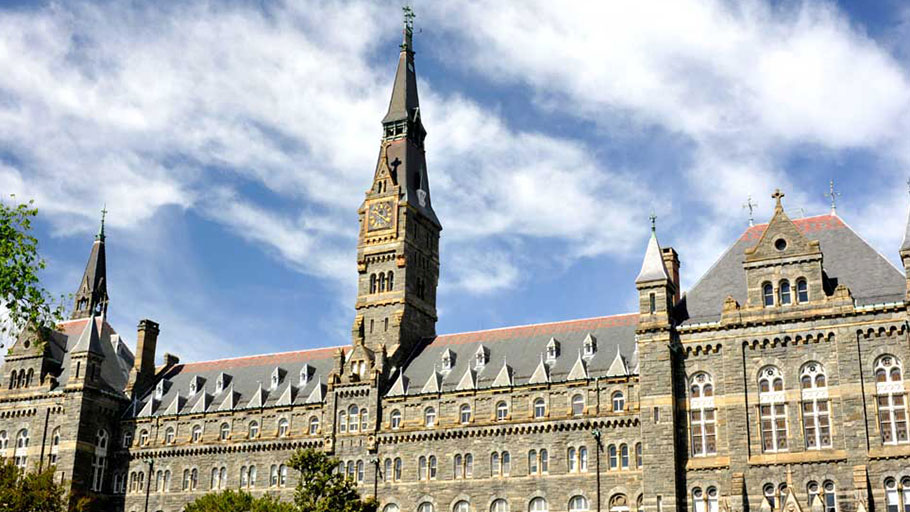Georgetown University should offer direct reparations to descendants of the 272 slaves sold in 1838 to validate the demands of African-American individuals affected by Georgetown’s legacy as a slave-holding institution. Offering reparations to the descendants could be done in conjunction with a long-lasting foundation, directly guided by the descendants and built to contribute to organizations that empower black communities.
While Georgetown should engage with descendants on a foundation or other steps going forward, it should also satisfy the request for direct reparations made by 200 descendants rather than serving as another white institution that universalizes the black experience by assuming what it believes to be the “common good.”
The Isaac Hawkins Legacy Group, which is composed of 200 descendants of Isaac Hawkins, one of the 272 slaves sold in 1838 to save Georgetown University from financial collapse, recently demanded Georgetown offer the group’s members financial reparations. Georgia Goslee, the group’s legal counsel, stated her clients’ belief that the university has not “fully atoned for the wealth it unjustly accumulated off the back of unpaid slave labor.”
The editorial board’s claim that reparations would be infeasible to enact is an insufficient reason to foreclose the conversation about reparations entirely, particularly as Georgetown has substantial wealth to use at its discretion. For example, during fiscal year 2016, Georgetown spent $54.8 million on “travel and business expenses.” While we are certainly not suggesting Georgetown go bankrupt, we believe restitution efforts demand a scale large enough to engage the resources of the entire university.
Moreover, dismissing the request for reparations by claiming infeasibility sets a dangerous precedent of avoiding critical engagement with ourselves and our institutions. To claim reparations are impossible sidesteps our responsibility to atone for the past.
In a September 2016 article in Vox, Tressie McMillan Cottom, a professor of sociology at Virginia Commonwealth University, argued that any reparations effort by Georgetown must include compensation. “Reparations means paying someone for [unpaid] labor,” Cottom wrote.
Direct reparations may appear to further monetize human life or minimize the psychological impact of slavery, but financial compensation addresses the lasting economic hardships brought on by the injustice of slavery and can set the basis for future healing processes.
Given that educated blacks continue to fare worse economically than uneducated whites, solely providing educational opportunities through a foundation or a favorable admissions policy cannot satisfy the descendants’ call for reparations. As Cottom eloquently states, “You don’t admit you owe someone money and repay them with lottery tickets.”
A foundation centered around educational opportunities surely benefits some individuals who are able to attend school and choose to do so, but may prove useless to those who face different but equally valid needs. Descendants do not necessarily share all the same needs; different solutions must be applied to different groups. Most importantly, Georgetown must listen to the demands and requests of descendants at every step of this ongoing process.
Of course, no person should be required to accept direct reparations. The whole point of this process would be to privilege the voices and affirm the decisions of each descendant.
We understand that, as white women, we cannot fully grasp how it feels to have ancestors who were enslaved. We believe the process of moving forward must be led by the descendants themselves.
Paying direct reparations to the descendants sets a precedent of listening to and validating the voices of black individuals in our national conversation around the legacy of slavery. For far too long, black voices have been marginalized and ignored in our nation. Martin Luther King Jr. expressed frustration with “white moderates” who would say to African Americans, “I agree with you in the goal you seek, but I cannot agree with your methods of direct action.”
Georgetown has the responsibility and opportunity to lead the country on the path of reckoning with legacies of slavery as the first institution to offer direct payment to the descendants of slaves.
To the GU 272 descendants who request reparations, Georgetown must say: “We hear you,” and Georgetown must mean it. The university should pay reparations, rather than paternalistically asserting it knows a better path toward justice.
Grace Laria is a junior in the SFS. Emma Lux is a senior in the College. Laria and Lux are members of The Hoya’s editorial board, dissenting from this issue’s editorial, “Form Descendant-Led Foundation.”















